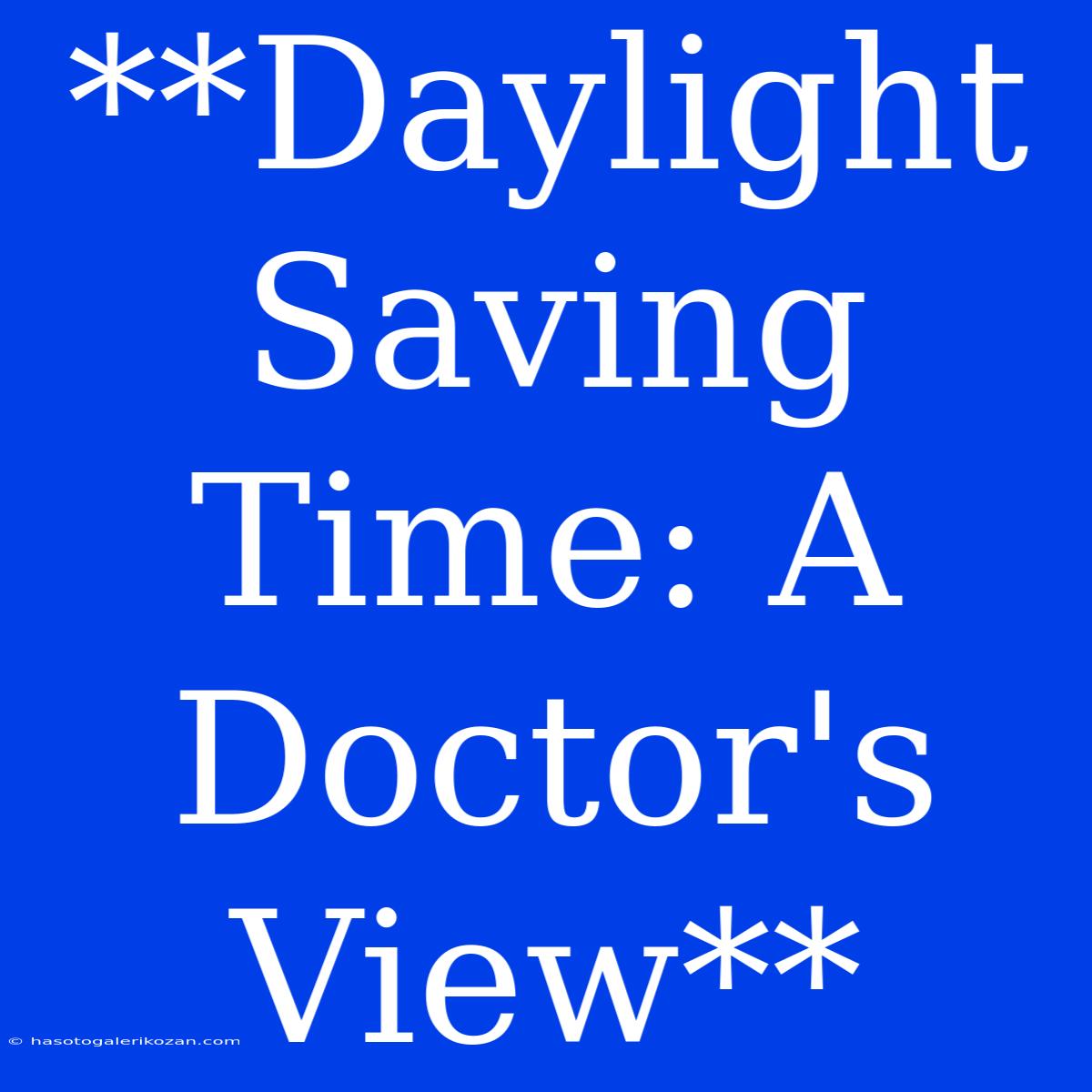Daylight Saving Time: A Doctor's View
Daylight Saving Time (DST) is a topic that sparks debate every year. Some people love the extra hour of daylight in the evenings, while others struggle with the disruption to their sleep schedules. As a doctor, I've seen firsthand how DST can affect patients' health and well-being.
The Impact on Sleep and Health
The most significant impact of DST is on our sleep patterns. When the clocks spring forward, we lose an hour of sleep, which can lead to:
- Increased fatigue: This can impact focus, concentration, and overall mood.
- Increased risk of accidents: Drowsy driving and other accidents can become more common.
- Increased risk of health problems: Studies have linked sleep deprivation to chronic diseases like heart disease, stroke, and diabetes.
The transition back to standard time can also be challenging. Many people experience:
- Sleep inertia: This is a feeling of grogginess and disorientation that can persist for several days after the time change.
- Increased anxiety: The change in sleep patterns can exacerbate pre-existing anxiety or cause new anxiety symptoms.
- Increased risk of seasonal affective disorder (SAD): The shorter days and reduced sunlight can contribute to SAD, a type of depression linked to changes in seasons.
What Can We Do?
The good news is that there are ways to mitigate the effects of DST:
Before the Time Change:
- Prepare for the change in advance: Gradually adjust your bedtime and wake-up time in the days leading up to the change.
- Avoid caffeine and alcohol before bed: These substances can interfere with sleep quality.
- Create a relaxing bedtime routine: This can help signal to your body that it's time to sleep.
After the Time Change:
- Get as much sunlight as possible: Exposure to sunlight helps regulate your natural sleep-wake cycle.
- Stick to a consistent sleep schedule: Go to bed and wake up at the same time every day, even on weekends.
- Avoid naps during the day: Napping can disrupt your sleep cycle and make it harder to fall asleep at night.
- Talk to your doctor: If you experience significant sleep difficulties or other health problems related to DST, consult your doctor for advice.
Conclusion
Daylight Saving Time can have a significant impact on our health and well-being, especially when it comes to sleep. By understanding these impacts and taking steps to minimize the disruption, we can better manage the challenges of this annual time change. However, ultimately, the best solution for many people may be to eliminate DST entirely.
